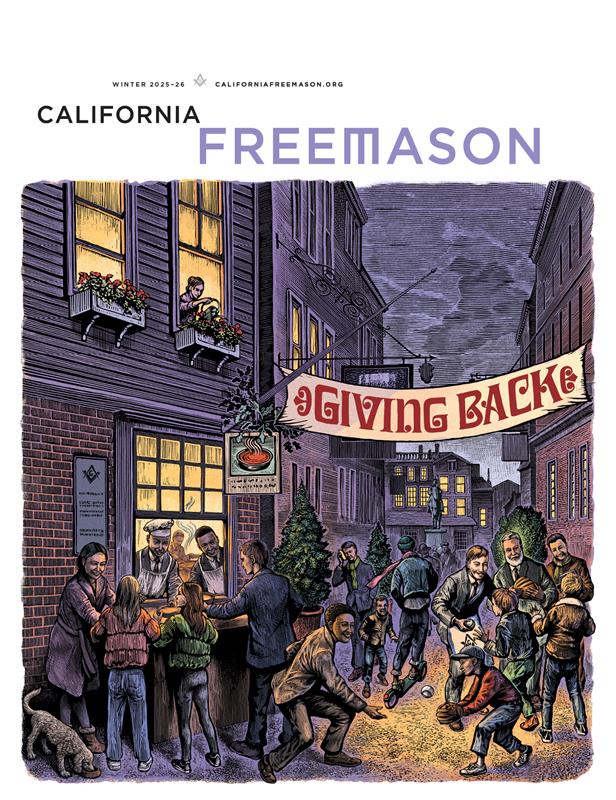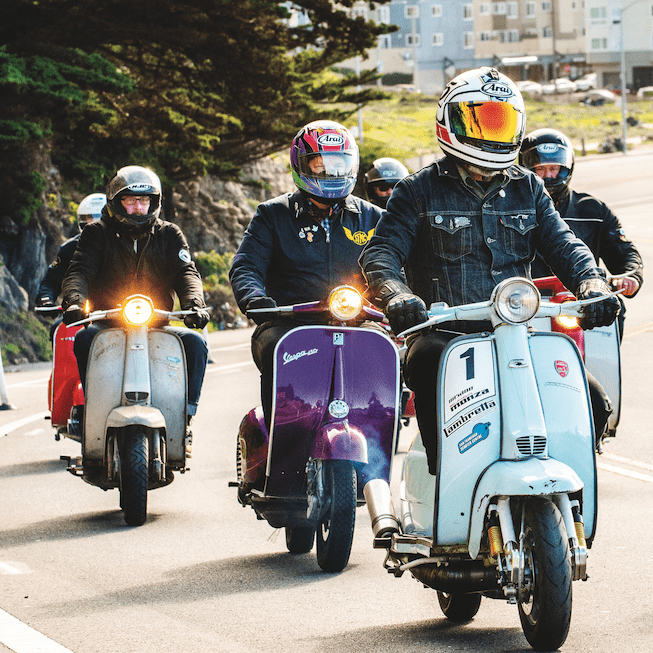
the relief issue
Spreading Relief
Nineteen inspiring ways Masons stepped up during covid-19.
Compiled by Justin Japitana, Antone Pierucci, and Ian A. Stewart
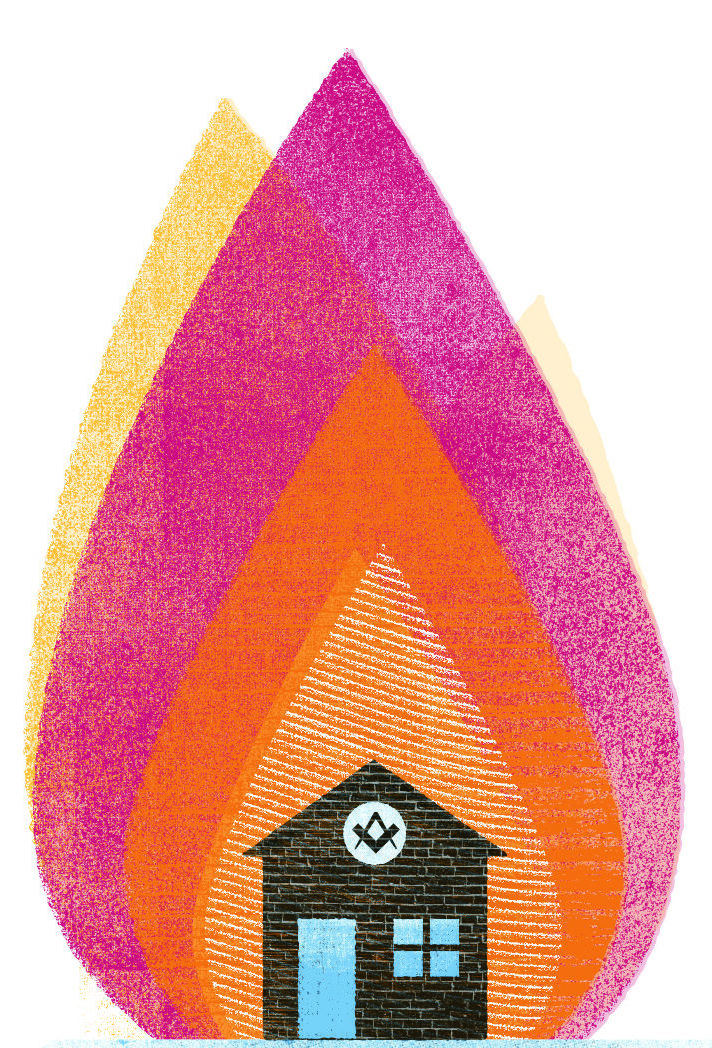
The guidance from government and health officials was clear: Do nothing.
That’s a hard message to swallow for California Masons, a group not known for sitting on their hands. The resulting tension—between staying safe and getting involved—can be seen in the creative ways members found to remain connected and provide for their communities. Here, a celebration of 19 of our favorite examples of Masons rallying into action, while keeping (mostly) still.
Does your lodge have a story of relief that you’d like to share? Email us at communications@freemason.org
1. A Song for Our Times
An opera soprano serenades Acacia Creek
Inspired by the example of the Italian balcony singers, residents of Acacia Creek Retirement Community sent out their own uplifting message—and what a sound it was. As Soprano Tracy Cox, who has performed with the Metropolitan Opera in New York and around the world, performed a moving rendition of “America the Beautiful,” Acacia Creek residents joined as one, waving American flags from their balconies as a symbol of unity. As of May 1, the video had garnered more than 23,000 views.
2. "We're All In This Together"
A SoCal lodge helps kick-start a record funding drive.
 It was a decision, sure, but then again it wasn’t, explains Levon Keshishian, secretary of Wisdom No. 202 in Pasadena. When members of the lodge’s charity committee met in March for the first of their now weekly videoconferences, there was much to discuss. But one thing that didn’t require much debate was their determination to make a lodge gift to the Distressed Worthy Brother Relief Fund, making Wisdom one of the first lodges statewide to contribute to the fund and helping kick-start lodge-level donations throughout their district. Thanks to gifts from a record number of individual Masons and lodges, the effort quickly became the most successful online fundraising drive in fraternity history. “It always starts with one person and then goes beyond that,” Keshishian says of getting the ball rolling. “We’re all in this together. Who knows, we may need [assistance] at some point. It’s how we take care of one another. It’s part of our obligation.”
It was a decision, sure, but then again it wasn’t, explains Levon Keshishian, secretary of Wisdom No. 202 in Pasadena. When members of the lodge’s charity committee met in March for the first of their now weekly videoconferences, there was much to discuss. But one thing that didn’t require much debate was their determination to make a lodge gift to the Distressed Worthy Brother Relief Fund, making Wisdom one of the first lodges statewide to contribute to the fund and helping kick-start lodge-level donations throughout their district. Thanks to gifts from a record number of individual Masons and lodges, the effort quickly became the most successful online fundraising drive in fraternity history. “It always starts with one person and then goes beyond that,” Keshishian says of getting the ball rolling. “We’re all in this together. Who knows, we may need [assistance] at some point. It’s how we take care of one another. It’s part of our obligation.”
3. Isolated–But Not Alone
iPads for octogenarians at the Masonic Homes.
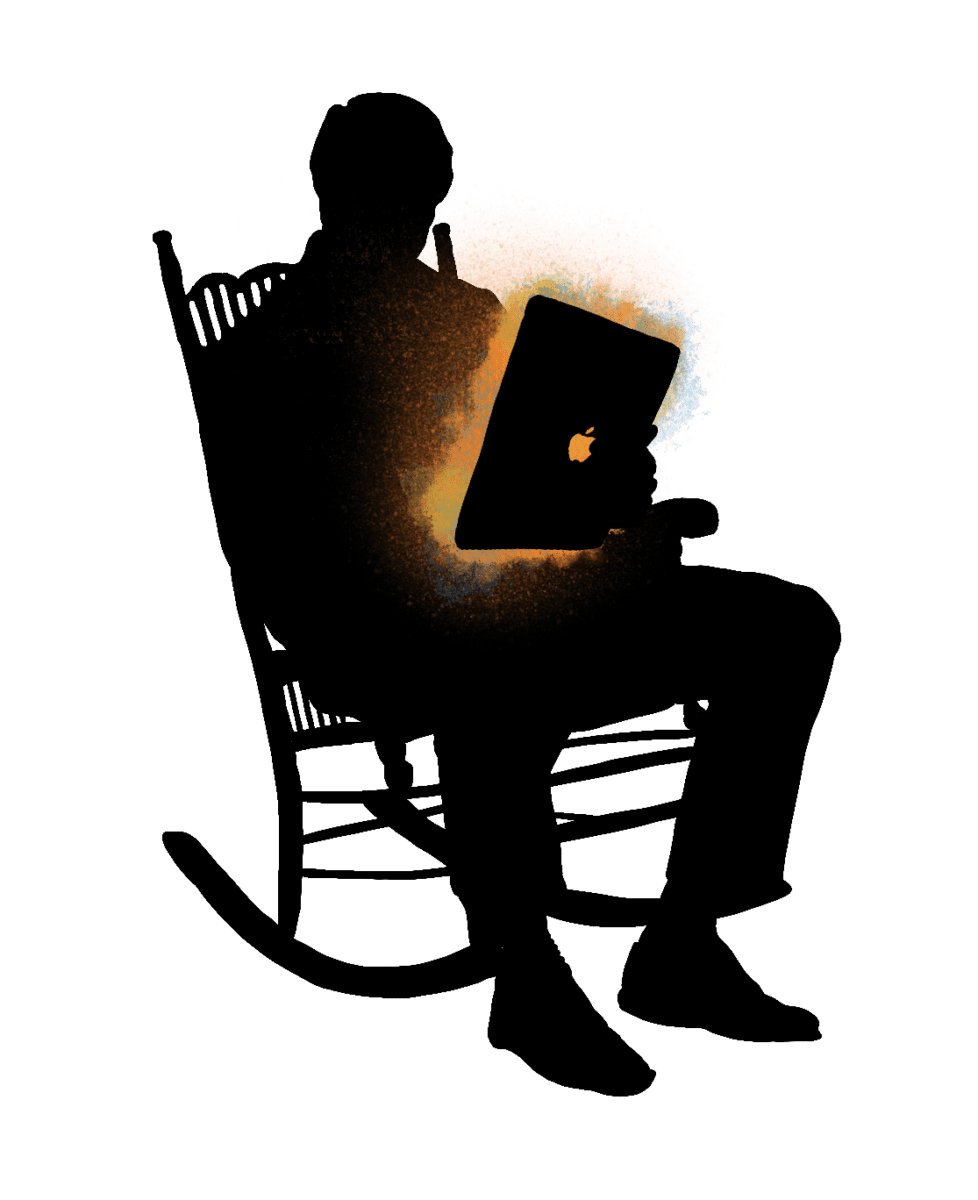 For the residents of the Masonic Homes of California, who belong to the cohort most vulnerable to COVID-19, the need for self-isolation was acute. But equally important was the need to combat the inevitable loneliness that social distancing brings. So staff at the Homes turned to technology, providing tablets and IT help to get residents set up for videoconference calls with friends, family, and therapists from the Masonic Center for Youth and Families—and provide a lifeline to the outside world. “Residents are video-visiting their loved ones and connecting with family and old friends,” says MHC president Gary Charland. “It’s crucial we recognize the importance of social interaction in these uncertain times and continue to prioritize it.”
For the residents of the Masonic Homes of California, who belong to the cohort most vulnerable to COVID-19, the need for self-isolation was acute. But equally important was the need to combat the inevitable loneliness that social distancing brings. So staff at the Homes turned to technology, providing tablets and IT help to get residents set up for videoconference calls with friends, family, and therapists from the Masonic Center for Youth and Families—and provide a lifeline to the outside world. “Residents are video-visiting their loved ones and connecting with family and old friends,” says MHC president Gary Charland. “It’s crucial we recognize the importance of social interaction in these uncertain times and continue to prioritize it.”
4. Meeting on the Level–Virtually
The fraternity moves online.
 One of the most common, if still somewhat bewildering, outcomes of the economic and civic shutdown has been the explosion in popularity of the videoconference program Zoom. And while many lodges are now old hands at the newfangled tool, Sacramento No. 40 was quite likely first on the scene. Beginning the very night Grand Master John Trauner’s order to suspend stated meetings went out, the lodge held its first Zoom meetup—a now weekly event that brings together members as young as their 20s and as old as 96-year-old Golden Veteran member Edgar Jang. “He seems to enjoy it,” lodge master Gabriel Mariscal says of the lodge’s senior member. Rather than view distance as a hindrance, Mariscal says going online has opened up new avenues for connection. “Now more than ever,” he says, “we need to strengthen the ties between us.”
One of the most common, if still somewhat bewildering, outcomes of the economic and civic shutdown has been the explosion in popularity of the videoconference program Zoom. And while many lodges are now old hands at the newfangled tool, Sacramento No. 40 was quite likely first on the scene. Beginning the very night Grand Master John Trauner’s order to suspend stated meetings went out, the lodge held its first Zoom meetup—a now weekly event that brings together members as young as their 20s and as old as 96-year-old Golden Veteran member Edgar Jang. “He seems to enjoy it,” lodge master Gabriel Mariscal says of the lodge’s senior member. Rather than view distance as a hindrance, Mariscal says going online has opened up new avenues for connection. “Now more than ever,” he says, “we need to strengthen the ties between us.”
5. Rewriting History
A Central California lodge launches an essential app.
The old minutes books of Texas Lodge No. 46 record a century and a half of crises in San Juan Bautista, from economic depression to two world wars—troubling times during which Masons stepped up to take charge of community-service efforts. Future Masons may look back at the lodge’s actions during the COVID-19 crisis and see a similar civic-mindedness—although one with a distinctly 21st-century twist. Today, the lodge is making its mark with an innovative crowdsourced supply-delivery program and a mobile app launched by its members. “Traditionally, the lodge was the hub” of community response, says past master Ray Hill. “So it just seemed proper to make it so again.”
This spring Hill, along with several lodge members and a few non-Masons, launched an online forum where local people in need can post requests for supplies—a sort of Craigslist for essentials. Supplies like groceries and household items are routed through the Texas No. 46 lodge hall, where members and volunteers package and then deliver the goods.
Members of the lodge even developed a mobile app for the program. “The hope is that this resource can become as much a communication tool as a means for quarantined people to get the supplies they need,” says lodge secretary Loren McKechnie. The program has already received plaudits from the city council and local news organizations—and reestablished Texas Lodge as an indispensable part of its community.
6. Helping the Helpers
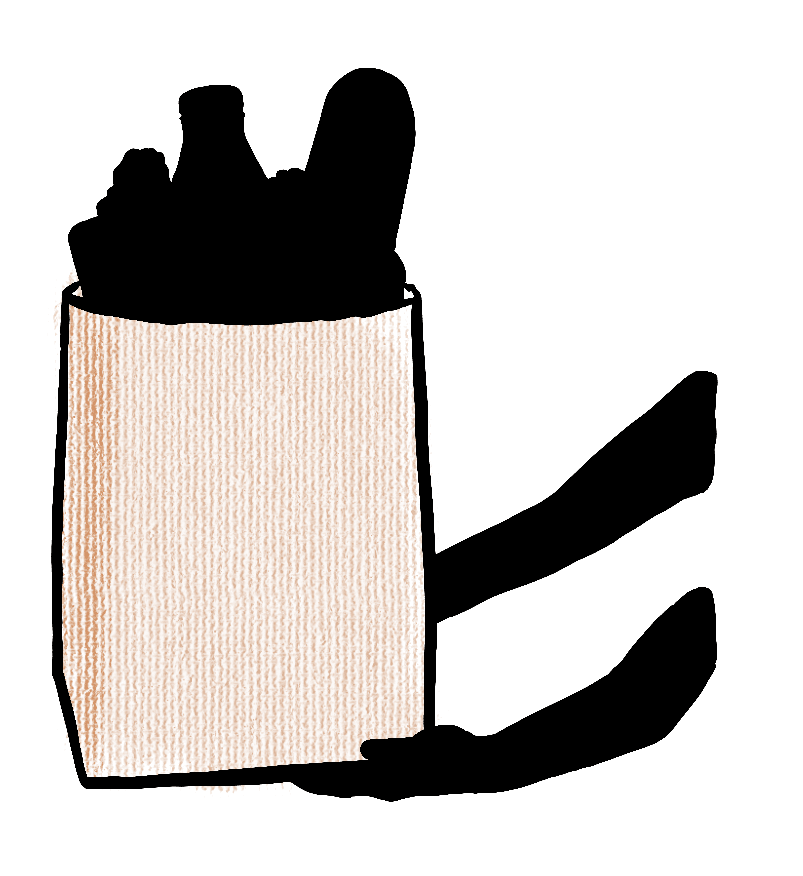 When Anthony Milanes, master of Imperial Valley No. 390, and the rest of the lodge’s charity committee considered how to respond to the pandemic, their thoughts went immediately to the elderly.
When Anthony Milanes, master of Imperial Valley No. 390, and the rest of the lodge’s charity committee considered how to respond to the pandemic, their thoughts went immediately to the elderly.
Meeting online, the committee agreed to make a $5,000 donation to the Imperial County Area Agency on Aging, which administers Meals on Wheels. The gift helped pay for care packages of water, toilet paper, and other essentials to be delivered to senior citizens by the agency. “What we all have in common is wanting to be of service,” Milanes says.
7. Spreading the Word
A rural lodge puts its money where its mouth is.
In the absence of regular lodge duties, the officers of Acalanes Fellowship No. 480 spent March updating their membership roster, which volunteers used to check in on older members and widows. In many cases, outreach volunteers—dubbed local leaders by lodge master Adam Hanin—found that elderly members had moved in with family. In those cases, Hanin says, the check-in calls became about informing family members of the many Masonic services available to them. “The families are always astonished to learn just how much the fraternity is here to help,” Hanin says.
8. Filling the Void
How one lodge turned its empty hall into a community good.
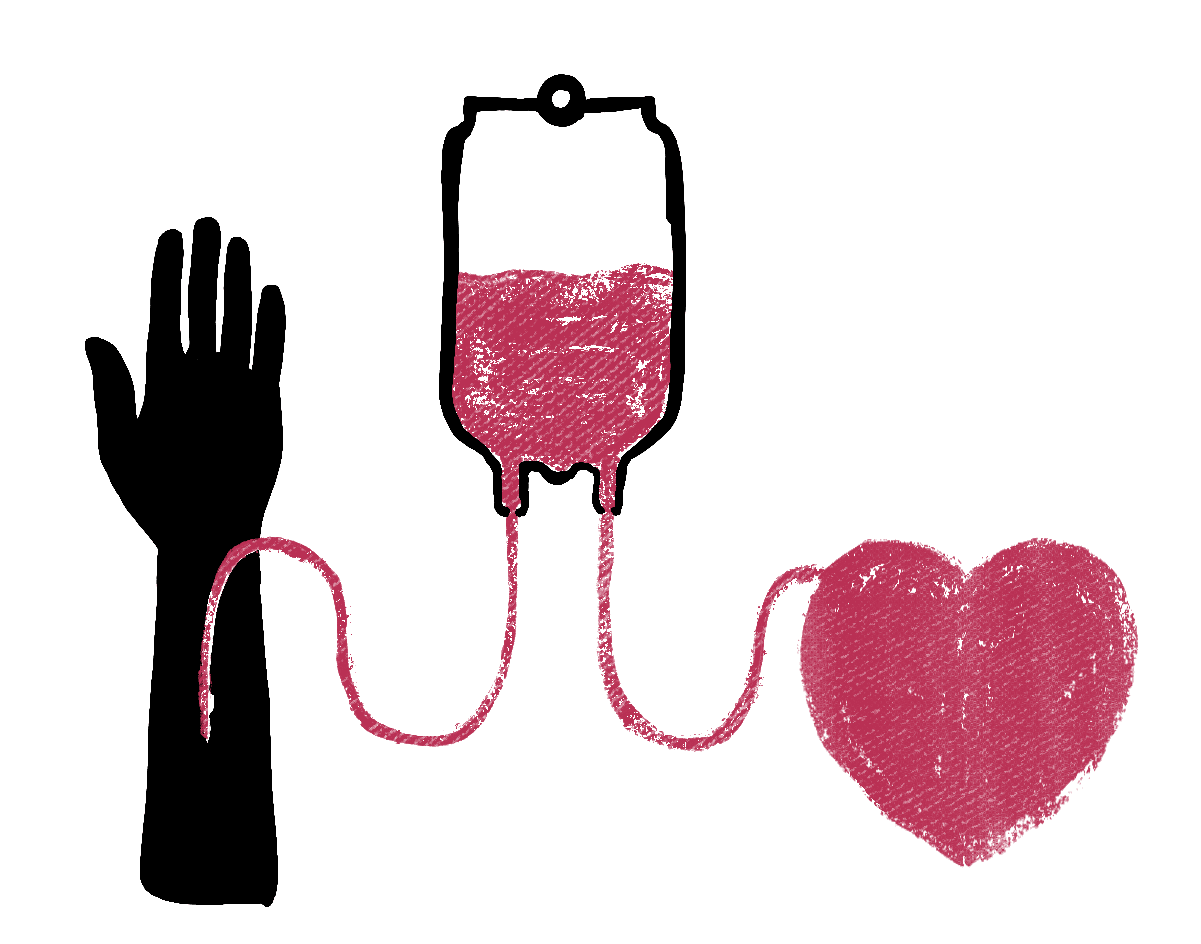 Wondering what your lodge can do to make a difference during a crisis? Most Masons needn’t look farther than their likely vacant hall, says Lindsey Shortland, master of Yorba Linda No. 469. “How many thousands of square feet of empty halls are there now in California?”
Wondering what your lodge can do to make a difference during a crisis? Most Masons needn’t look farther than their likely vacant hall, says Lindsey Shortland, master of Yorba Linda No. 469. “How many thousands of square feet of empty halls are there now in California?”
Shortland and the rest of the Yorba Linda lodge did just that, putting their space to good use. In mid-March, the lodge was approached by the regional chapter of the American Red Cross about using the hall to hold a blood drive. Since the shutdown began, the closure of blood banks has led to a loss of more than 25,000 pints of blood in Southern California alone.
The lodge eagerly opened up the space free of charge, and since then the Red Cross has facilitated the much-needed blood donations. (The Red Cross has procedures for collecting blood during a pandemic.) The idea spread, too: After posting an update about the drive on their Masonic district Facebook page, nearby lodges followed suit. Now half a dozen Masonic halls in Orange and San Diego counties have offered their spaces free of charge. The Red Cross’s Robert Bahler is effusive in his praise. “The decisive action the Masons in the area have taken in opening their doors when others are closing theirs has helped stabilize the supply of blood for the American Red Cross. That’ll save lives in the end.”
9. Sharing His Experience
A respiratory therapist shares his experiences on the front lines.
When Nick Hayworth, past master of Island City No. 215 in Alameda, gets home from work these days, he takes his shoes off at the door. Then he sprays them down with Lysol. Next he takes off all his clothes, dumps them into the washing machine, and jumps in the shower, careful not to touch anything until he’s been fully disinfected.
Such are the precautions that Hayworth, a respiratory therapist at the Alameda Hospital—and one of dozens of Masons working on the front lines of the pandemic around the state—has been forced to take as a result of the coronavirus outbreak. “It’s putting fear in the staff,” Hayworth says. “Once you put that [personal protective equipment] on, that’s when it starts to sink in.” The result is that Hayworth has had a view of the pandemic that most people are lucky not to see. “With COVID-19, it happens fast,” he says. “You think people are OK. Then they start to go south and boom—they crash. It’s not a gradual thing.”
Hayworth has shared his up-close perspective on the damage the virus wreaks with his fellow Masons, giving them a new appreciation for the scope of the pandemic. So far, Hayworth has been invited to share his experiences on video calls with Oakland Durant Rockridge No. 188 and others. His message: “Take this thing seriously,” he says.
10. A Tradition is Reborn, Online
The Nine O’clock Toast returns—this time on Facebook.
With heart emojis blossoming around him, Grand Master John Trauner broke new ground for the Masons of California on April 4 when he raised a ceremonial toast live over Facebook to honor medical workers and others on the front lines of the COVID-19 outbreak. The toast, the first of a weekly series featuring various members of the Grand Lodge, brought together more than 500 Masons from as far afield as Australia and Brazil, who tuned in to hear Trauner’s 15-minute address.
The raising of the glass replicates what is believed to be a centuries-old Masonic tradition, the Nine O’clock Toast, in which Masons honor their “absent brethren” at the appointed hour. For Trauner, the event was a way to celebrate first responders and for the fraternity to enjoy fellowship during what for many is a lonely time. “When you’re traveling every week and you only get to stay home for a day or two, you almost take everyone for granted,” Trauner said. “Then suddenly it all stops, and you realize how important that connection really is.”
11. Crafting Their Response
Masonic Homes residents put their needles to work.
 With N95 and surgical masks in short supply nationwide, a group of residents at the Masonic Homes turned to their crafting hobbies to stitch together a reply to the crisis. Shortly after the CDC issued its recommendations on wearing facial protection in public, a group of a dozen residents took up the call for DIY masks, producing enough cloth coverings, with a pocket sewn in to add a filter, for every staff member and resident of the Masonic Homes’ two campuses.
With N95 and surgical masks in short supply nationwide, a group of residents at the Masonic Homes turned to their crafting hobbies to stitch together a reply to the crisis. Shortly after the CDC issued its recommendations on wearing facial protection in public, a group of a dozen residents took up the call for DIY masks, producing enough cloth coverings, with a pocket sewn in to add a filter, for every staff member and resident of the Masonic Homes’ two campuses.
12. School's Out–But Books Remain
Raising A Reader adapts to a new educational approach.
For California students, school has moved entirely online—with mixed results as districts have tried to quickly adapt to a digital-only curriculum. For kids trying to maintain grade-level literacy, it’s a potentially enormous educational inflection point.
Raising A Reader, the fraternity’s childhood–literacy partner, has helped bridge that gap. With weekly town-hall conferences and webinars for schools and districts, video updates, reading tips, and strategies aimed at parents, plus a list of online resources and educational tools, the national nonprofit is working to ensure that vulnerable young students don’t lose ground. For the fraternity, it’s a reminder that the Masonic commitment to childhood literacy never falters.
13. How Sweet the Sound
A bagpiper soothes a city on edge.
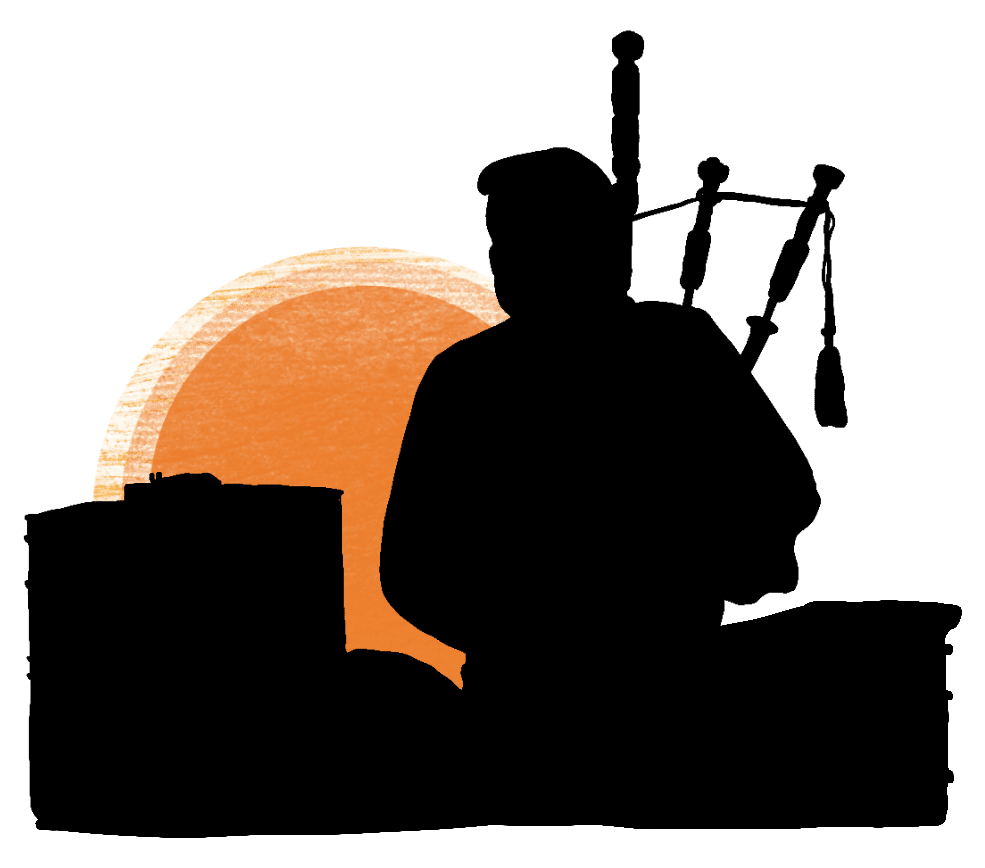 Hal Wilkes knows something about capturing the spirit of a moment. The professional bagpiper and pipe major for Prometheus Lodge No. 851 usually performs to mark weighty occasions—typically weddings and funerals. But when San Francisco issued its shelter-in-place order on St. Patrick’s Day, Wilkes decided to mark the occasion by climbing onto the roof of his apartment and saluting the sunset with a tune. Living in the bowl-shaped center of Eureka Valley, and with the streets practically vacated, the sound of Wilkes’s pipes carried for miles around.
Hal Wilkes knows something about capturing the spirit of a moment. The professional bagpiper and pipe major for Prometheus Lodge No. 851 usually performs to mark weighty occasions—typically weddings and funerals. But when San Francisco issued its shelter-in-place order on St. Patrick’s Day, Wilkes decided to mark the occasion by climbing onto the roof of his apartment and saluting the sunset with a tune. Living in the bowl-shaped center of Eureka Valley, and with the streets practically vacated, the sound of Wilkes’s pipes carried for miles around.
In the weeks that followed, Wilkes continued to serenade his neighborhood each evening with a tune. “I’m careful about that,” Wilkes says of his one-song limit. “Not everyone loves bagpipes.” Neighbors began looking forward to the performance, raising a toast with him from their balconies and porches. The song ultimately gave way to neighborly chitchat and a brief respite during an otherwise stressful time. A video on YouTube of one of his performances racked up a quarter-million views in three days, and he’s since been profiled by the San Francisco Chronicle, NBC Bay Area News, and even a German television station. In early April, Wilkes was debating what to play that evening when he settled on a lodge favorite: “Farewell to Oban,” the tune Wilkes plays to accompany officers into meetings (and the unofficial lodge anthem). “I had no intention of ever getting this much attention,” he says. “But it feels good. It’s all about staying positive.”
14. Switching Gears
At MCYAF, counseling goes online—without any lag.
“We’re in the people business,” says Kimberly Rich, executive director of the Masonic Center for Youth and Families. “As long as we can see people’s faces, we’re in good shape.” And that business is booming. Following the statewide shelter-in-place order, MCYAF transitioned its adult, teen, and family counseling services onto videoconferencing platforms without skipping a beat. It also expanded its offerings, launching a “virtual visitor” program to connect elderly residents and staff of the Masonic Homes with a licensed MCYAF counselor for a bit of friendly conversation, and making its educational therapists available for schools, parents, and students struggling to cope with an entirely new educational paradigm. “All of us are searching for ways to stay emotionally well,” Rich says. “It’s an unprecedented time. It’s critical for the health of our families to remain strong.”
15. The Kids Are Alright
Masonic youth orders adapt to a new normal.
It is, perhaps, no surprise that the girls and boys of the Masonic Youth Orders have been quick to adapt to a world of FaceTime, Instagram, and Tik-Tok.
Throughout the state, assemblies of the Rainbow Girls and bethels of Job’s Daughters are hosting shared-streaming movie nights over platforms like Zoom and Netflix Party. They’ve also used it for business matters and practicing ritual: “Believe it or not, I think our girls are becoming more engaged in the ritual,” says George Lange, the fraternal relations advisor for Salinas Bethel No. 230.
DeMolay has seen virtual officer installations with advisors orchestrating from the digital wings. The Roseville chapter went one step further by livestreaming the installation on Facebook, drawing visitors from across the world. “They had people in the Philippines and South America joining in,” says James Banta, executive director of Northern California DeMolay.
Sometimes, though, you just can’t beat in-person interaction—even from a distance. That’s what the Salinas Bethel No. 230 found when they hosted a drive-by parade, in which the adult advisors surprised the girls by driving by each of their houses, honking their horns, and waving signs with messages of support.
16. The Supply Chain
In Glendale, a lodge ensures no one goes without.
For some members of Glendale Lodge No. 368, the sight of empty grocery shelves and panicked shoppers hit close to home: Many had firsthand experience living through food shortages in Soviet-era Armenia and Syria. “We’ve seen how you have to prepare,” says lodge master Vram Martirosyan.
So the lodge jumped into action: After some online sleuthing, members located a supply warehouse in Los Angeles and made bulk purchases of essentials like toilet paper, hand sanitizer, bottled water, and perishable foods, which it made available to elderly lodge members and community neighbors. A nearby restaurant, Pierre Garden (owned by senior warden Petros Gumrikyan), offered to prepare and donate hot meals for those in need. Volunteers from Glendale No. 368 and nearby Vallee de France Lodge No. 329 helped coordinate and deliver the supplies. The lodge has also partnered with the Salvation Army, which is directing those in need to the lodge for essentials. “We know brothers who’ve been through disasters before,” Martirosyan says. “We don’t want to experience that here. This is just enough to last us through the stress period.”
17. A Much-Needed Laugh
MHC staff re-create a blast from the past.
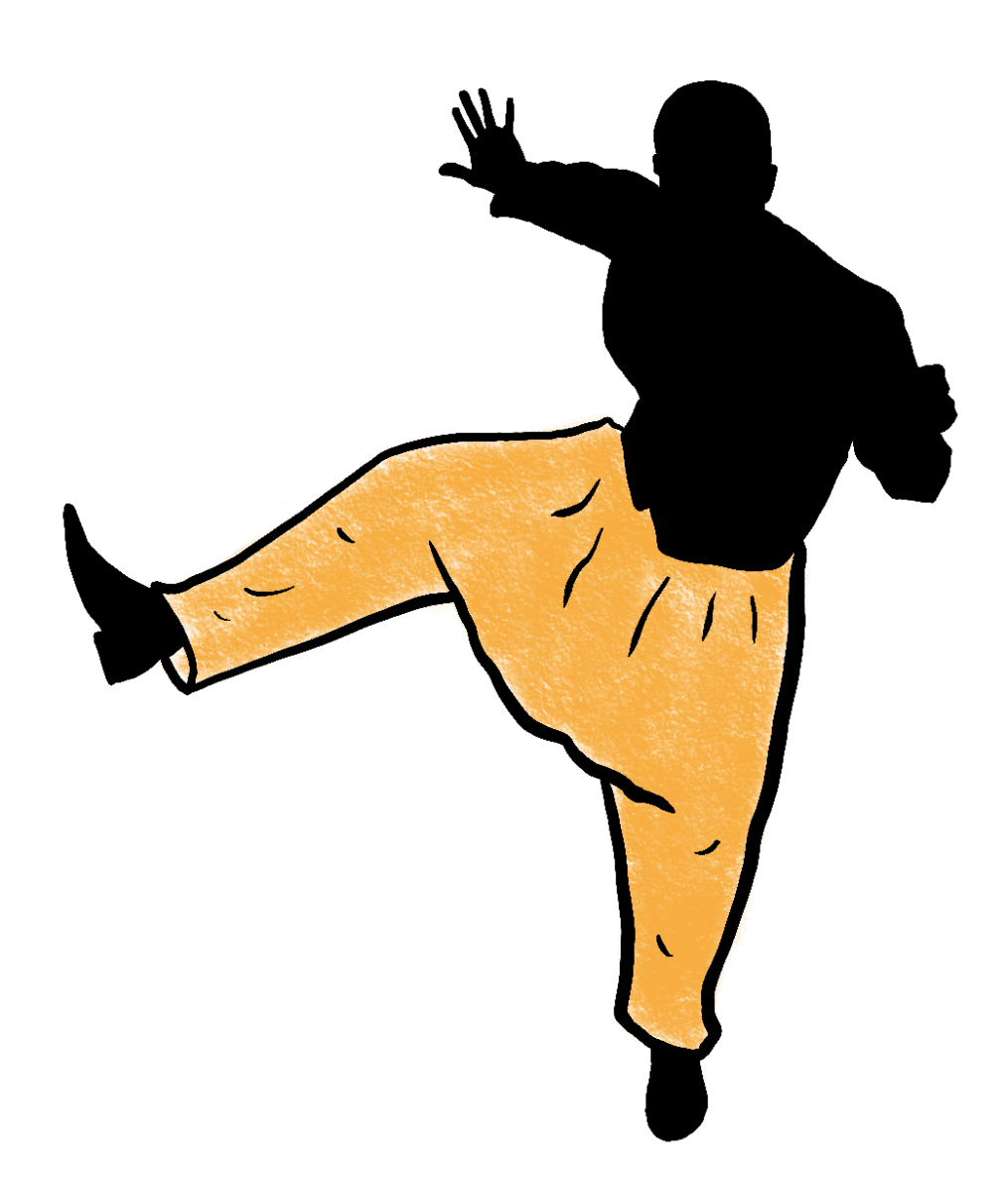 Inspired as much by the need for a bit of levity as by the need to share good hand-hygiene tips, staff at the Masonic Homes of California in Union City adapted ’90s hip-hop icon (and East Bay native) MC Hammer’s “U Can’t Touch This” for a thoroughly silly music-video-slash-public-service-announcement on virus safety. Thankfully, no parachute pants were involved.
Inspired as much by the need for a bit of levity as by the need to share good hand-hygiene tips, staff at the Masonic Homes of California in Union City adapted ’90s hip-hop icon (and East Bay native) MC Hammer’s “U Can’t Touch This” for a thoroughly silly music-video-slash-public-service-announcement on virus safety. Thankfully, no parachute pants were involved.
18. Starting With a Bang
A newly launched lodge hits the ground running.
Hermes Lodge U.D. was forced to postpone its ceremony of institution this spring, but that didn’t stop the new lodge from responding to the crisis like veterans. From calling committees to delivering supplies, the lodge has already gotten off to an inspiring start, says master Joe Newman. “This is our time,” he says. “We’re just living by our obligation.”
19. Tools of the Tradesmen
There’s an entire construction crew at the ready in Turlock.
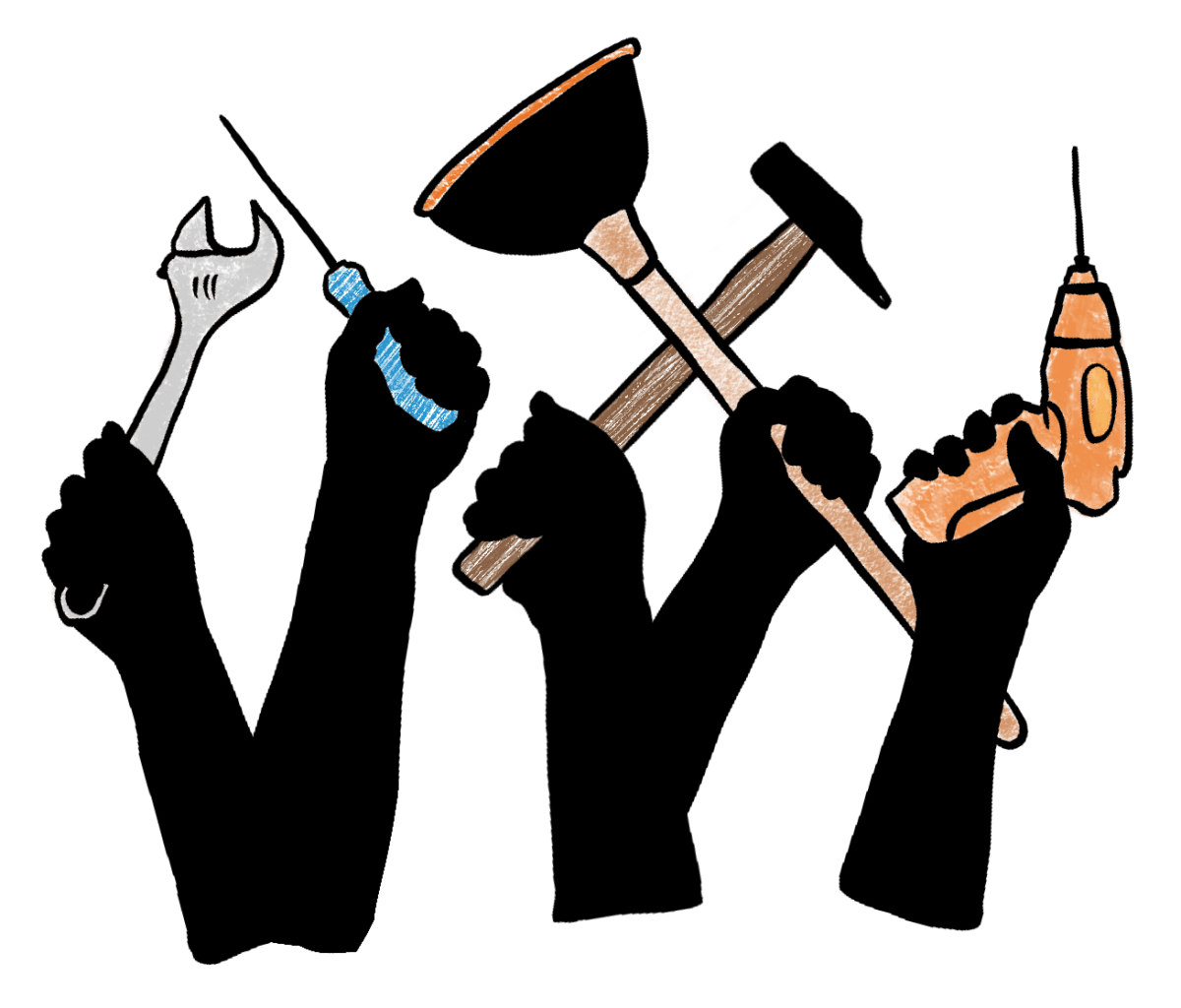 When the members of Turlock Lodge No. 236 began calling around in early March to check on one another, they were greeted with dozens of offers of help. For many it was as simple as picking up groceries for more “seasoned” members of the lodge, as secretary William “Bart” Sargenti put it. Others offered their skills, including an electrician, a plumber, and a landscaper. Before long the lodge had practically an entire building and trades team at the ready. “We’ve got a community of younger men who are really excited and wanting to be of service,” says lodge master John Matter. “They want to do the things we talk about in lodge. I’m amazed by how many people have stood up and said, ‘Hey, I’ll do it!’ It’s made me happy to be master of this lodge.”
When the members of Turlock Lodge No. 236 began calling around in early March to check on one another, they were greeted with dozens of offers of help. For many it was as simple as picking up groceries for more “seasoned” members of the lodge, as secretary William “Bart” Sargenti put it. Others offered their skills, including an electrician, a plumber, and a landscaper. Before long the lodge had practically an entire building and trades team at the ready. “We’ve got a community of younger men who are really excited and wanting to be of service,” says lodge master John Matter. “They want to do the things we talk about in lodge. I’m amazed by how many people have stood up and said, ‘Hey, I’ll do it!’ It’s made me happy to be master of this lodge.”
ILLUSTRATION CREDIT:
TOP: CHEN DESIGN ASSOCIATES
ILLUSTRATIONS: CLARK MILLER
More from this issue:

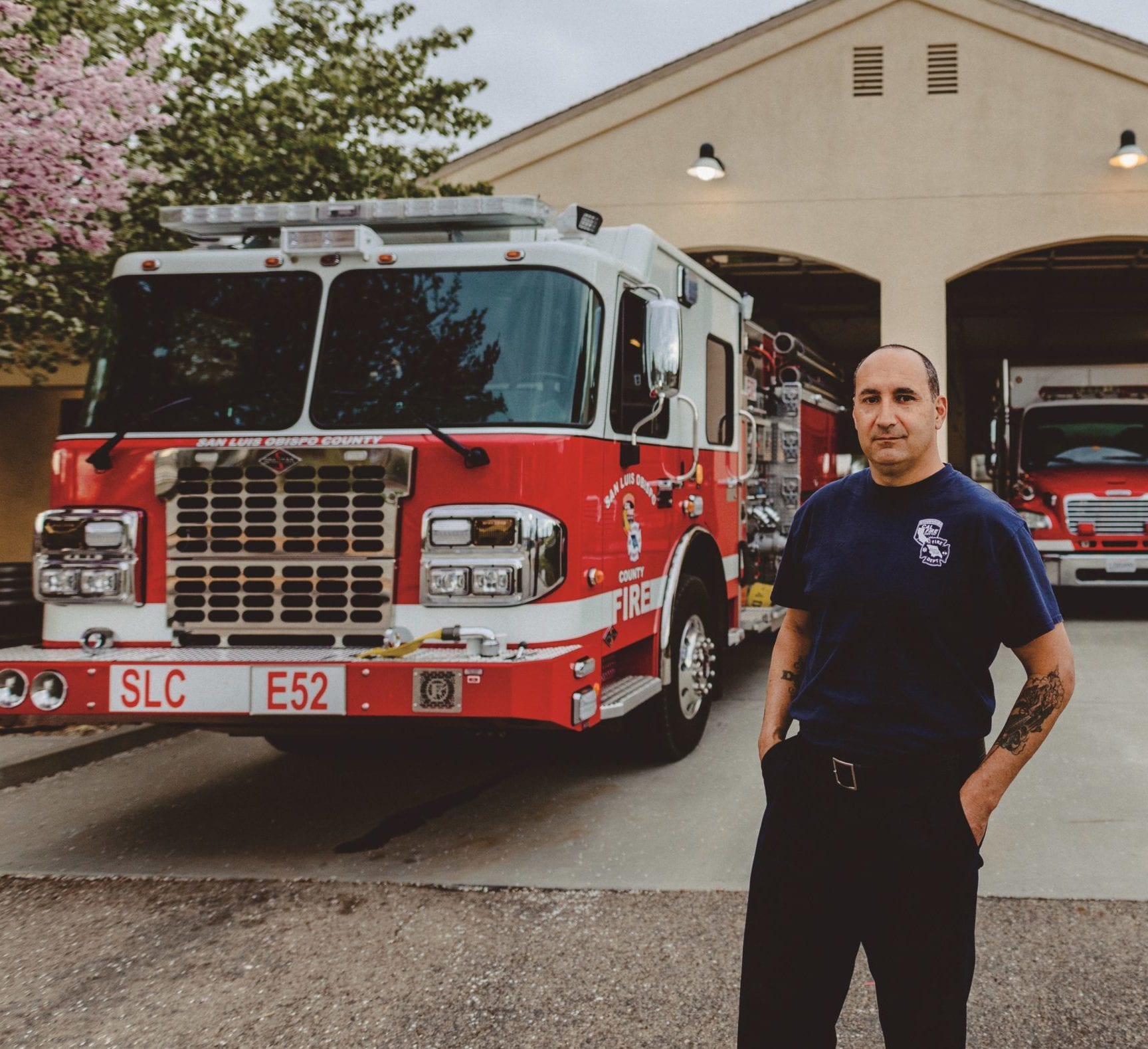
Donor Profile: David Coss
The Paso Robles fire prevention specialist and CalFire firefighter on battling wildfires and a global pandemic—at the same time.
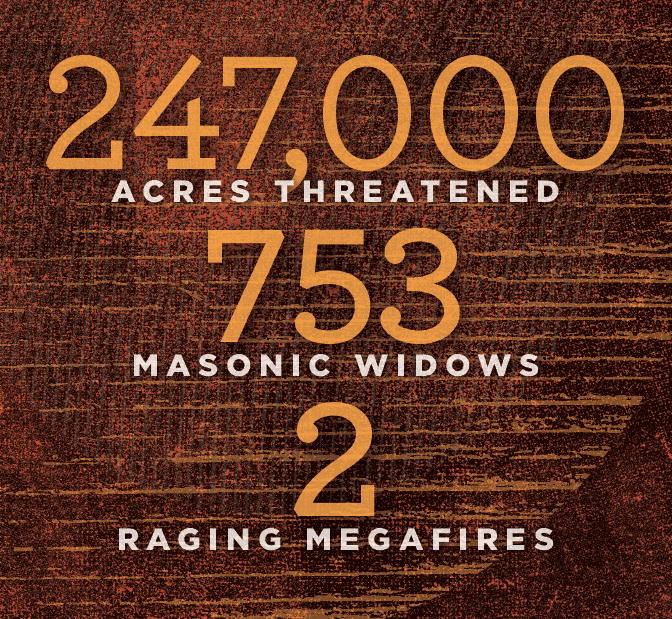
The Help Line
Recounting Masonic Outreach Service’s all-hands-on-deck approach during the 2018 wildfires.
